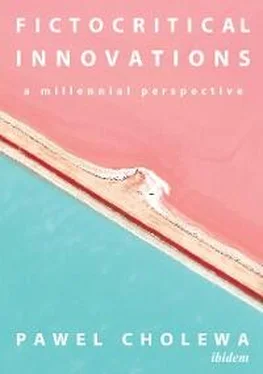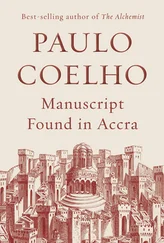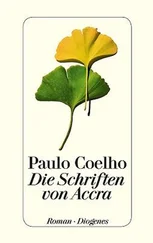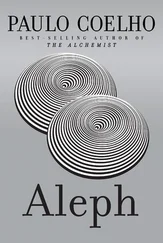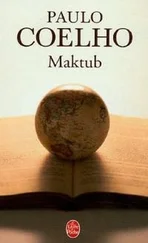ibidem-Press, Stuttgart
Table of Contents
ACKNOWLEDGEMENTS ACKNOWLEDGEMENTS I gratefully acknowledge the funding received from Central Queensland University through the UPRA Program that supported this research. I also respectfully acknowledge the expertise and guidance provided by Professor Stephen Muecke in the final stages of my PhD dissertation. Some sections and fragments of this book have previously been published in TEXT Journal, Idiom 23, Stoned Crows & Other Australian Icons: Prose Poems & Microfiction, Colloquy and narratorAUSTRALIA. Professional editor, John McAndrew, provided copyediting and proof-reading services of my PhD dissertation, according to the guidelines laid out in the University-endorsed national ‘Guidelines for Editing Research Theses’. Various names and identifying details and characteristics of locations, people and institutions have been altered or invented for creative, legal and confidentiality reasons. Book cover art/photograph “Pink Lake” courtesy of Liam Baster.
LIST OF TERMINOLOGY LIST OF TERMINOLOGY Creative self: Originator of creative folio(s) Analytical self: Writer of theses Folio(s): The (creative) fictocritical work written by the creative self Thesis/Theses: The theoretical analyses (of the creative work) written by the analytical self Section(s): A thesis and its accompanying folio
INTRODUCTION
SECTION I
FOLIO ONE: Journeys
“At Some Point Reality Needs to Become a Part Of …” (2013)
A Daze to Come True (2014)
A Literary Mitosis (On Form) (2014)
The Mission Man (2014)
An Apple on a String Swings in Front of Me (2014)
The Island (2015)
The Spirit of the Times (2013)
A Sentimental Cynic (2013)
‘Til Morning Came (2013)
“There’s a Road Train Going Nowhere” (2013)
“The Writer on Holiday” or Clockwork (2014)
A Train Ride to Russia in 2007 (2015)
Déjà Vu Delirium (2013)
Coast to Coast Infrequency (Part I) (2013)
Coast to Coast Infrequency (Part II) (2013)
Ghouls (2014)
End of the Weekend (2014)
Going Home (2014)
Tiers and Towers (2014)
THESIS ONE
Examining the Fictocritical Value of Journeys: The Author Meanders
SECTION II
FOLIO TWO: Family
Guise (2014)
Kwiat Dwóch Puszcz (2017)
Storm (2017)
Be the Tallest Poppy (2015)
Daj Mi Pić, Proszę Cię (2016)
Dickheads (2015)
THESIS TWO
My Family and other Fictions: Fictocriticism Creates New Subjectivities
SECTION III
FOLIO THREE: Education
(Scrapped) Book: A ‘Professional’ Educational(?) Overview (2016)
An Agitation (2016)
Hum, Amplitude, (Being a) Focal Point (2016)
‘Big’ Ideas (2016)
THESIS THREE
Fictocriticism as Innovative Pedagogy
SECTION IV
FOLIO FOUR: Technology
Preamble … (2013)
Busy Bees Buzz (2014)
Do the Evolution(ary Jig) (2015)
Coaxing the Ouroboros (2014)
Palahniuk’s Invisible Monsters (2015)
Technological Response: A Confession (2015)
Tunnel Vision: A Tribute to 2001: A Space Odyssey (2014)
(Constantly) Changing Headspaces: I’m Bored (2013)
… But My Friends are Unreliable, So Plans are Hard to Make (2014)
After all, the World Does Not Run on Time (2013)
Yet My Persistence and Insistence are Being Misconstrued as Haughty and Overbearing (2014)
Repetition (2014)
My Refrigerator: More Repetition (2014)
Solutionism (2017)
Canvas (2013)
P.S. Mutual Misunderstandings of Brotherhood (2014)
Idiocracy [Film] (2014)
Be Careful Though. There is such a Thing as Over-organisation (Regarding Huxley’s Brave New World Revisited) (2014)
Rushing the Order and Fate (2014)
The Flux of Repulsion or Expulsion (2014)
No. In Fact, I Do Not Need, I Do Not Want. (Mantra) (2014)
Two Cents (Everyone Has an Opinion) (2013)
‘Irony’, Alanis Morissette and Me (2015)
The Accumulation of Demons (2015)
Cattle Call (2015)
THESIS FOUR
Solutionism: Fictocriticism and the Digital World
CONCLUSION
BIBLIOGRAPHY
I gratefully acknowledge the funding received from Central Queensland University through the UPRA Program that supported this research. I also respectfully acknowledge the expertise and guidance provided by Professor Stephen Muecke in the final stages of my PhD dissertation.
Some sections and fragments of this book have previously been published in TEXT Journal, Idiom 23, Stoned Crows & Other Australian Icons: Prose Poems & Microfiction, Colloquy and narratorAUSTRALIA.
Professional editor, John McAndrew, provided copyediting and proof-reading services of my PhD dissertation, according to the guidelines laid out in the University-endorsed national ‘Guidelines for Editing Research Theses’.
Various names and identifying details and characteristics of locations, people and institutions have been altered or invented for creative, legal and confidentiality reasons.
Book cover art/photograph “Pink Lake” courtesy of Liam Baster.
To Wally, for stoking the flame.
To Tris, for settling the embers.
To friends and family, for your care, conversation, content, humour
and patience.
To Andrea, for being a second conscience, and for just helping me
to be a better version of my self during much of this process.
To God, for not existing, therein providing me the independence
and freedom necessary to rely on more innate and tangible things.
To all the blurred, pivotal or indirect influences.
To the multitudinous chaotic selves manifested in these writings:
may this work bring you some closure and a sense of unified
peace and consolidation.
Creative self:Originator of creative folio(s)
Analytical self:Writer of theses
Folio(s):The (creative) fictocritical work written by the creative self
Thesis/Theses:The theoretical analyses (of the creative work) written by the analytical self
Section(s):A thesis and its accompanying folio
This book has been adapted from a doctoral dissertation submitted to CQUniversity in 2019, and conferred in the same year. The study containing the two separate elements of creative work and analytical exegesis, was positioned within the creative writing field of fictocriticism, and stems from earlier ‘experiments’ in autobiographical writing and experiences of travel and growing up in Australia as a first-generation Polish-Australian male. Touching upon episodes of diaspora, family, education, and questions of ‘self’ and ‘identity’ that have arisen as a young creative artist living in an increasingly digital age, the exegesis of this creative work is both intensely personal and clinically theoretical. The creative pieces are thinly veiled personal accounts which, in turn, provide a framework for various thematic constructions for a developing sense of self in relation to the experiences under discussion. The reason for structuring this dissertation in four theses is due to the flexible, yet “inimitable” (Gibbs 1) needs of the fictocritical genre and form and because the discussion demands some definable limitations.
Initially, this exploration was influenced by Josie Arnold’s “The PhD in Writing Accompanied by an Exegesis” (2005), where she discusses the dichotomy between traditionalist or conservative modes of constructing a PhD, versus the more creative types of work that challenge preconceived or traditional templates of the exegesis and artefact model. This is where my interest in experimentation comes to the fore, and it offers a space where unique conceptualisations of creative/critical ‘academic’ writing are disseminated and introduced to provide new literary insights. Arnold references Nelson, Deleuze and Scrivener and their desire to ‘catastrophise’ or rebel against the type of ‘straight-jacket’ that is “the traditional thetic/exegesis” (38). This is where fictocriticism comes strongly into the equation, offering as it does, a revolutionary, experimental and metacognitive way of researching and writing in the synthesis of new and original thinking.
Читать дальше
